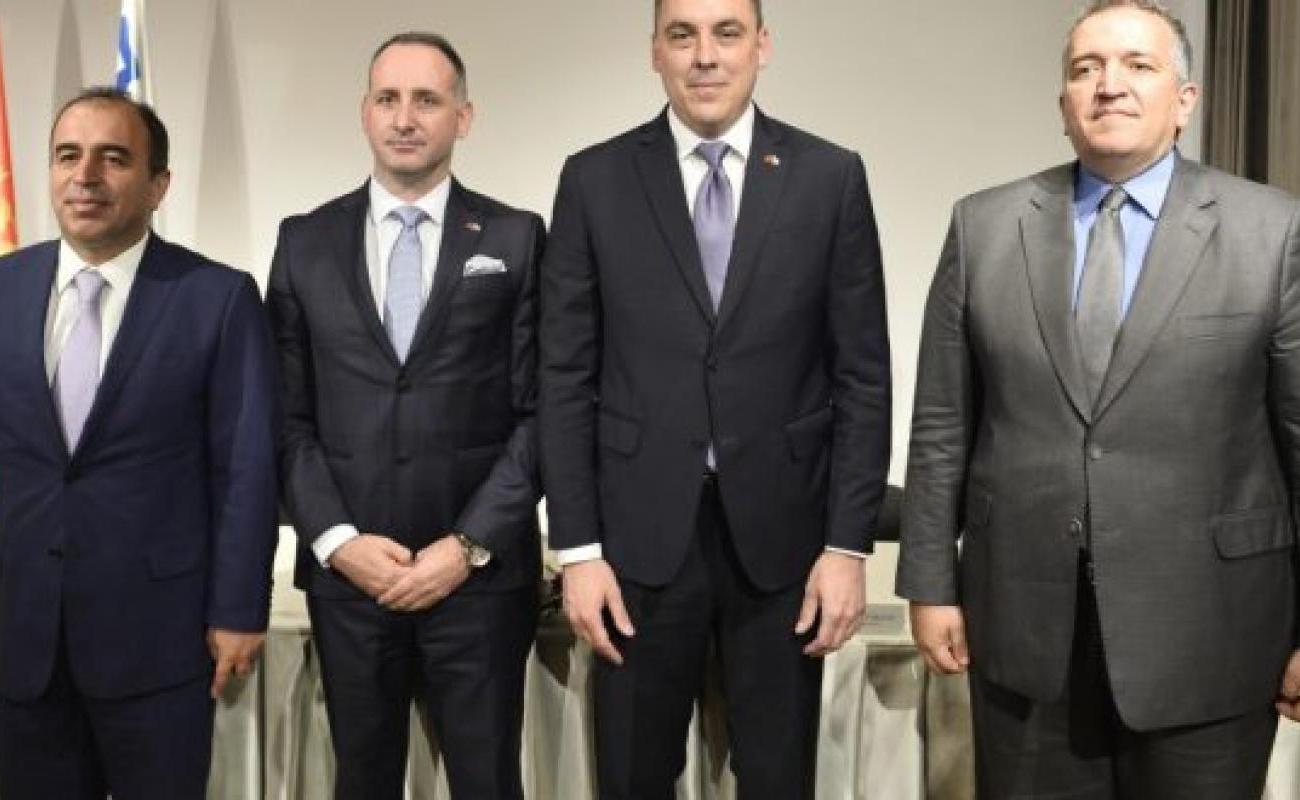Contract signed for the construction of a wastewater treatment plant in Podgorica

On 10 June 2022, a contract was signed for the construction of a wastewater treatment plant in Podgorica. This officially marks the beginning of the most demanding phase of the comprehensive investment project - actual construction of the plant - both in financial and construction terms as well as regarding the installation of the modern equipment for sewage treatment.
The complete project foresees the building of a new wastewater treatment plant for the city, as well as a sludge incineration plant, and extension of the sewerage network. The investments will make possible the collection and treatment of the wastewater generated by the city in line with EU standards.
The construction of a wastewater treatment plant is the largest infrastructure project in the history of Podgorica. The project started in 2009 when a Feasibility Study was prepared with the support of WBIF technical assistance. WBIF support continued through technical assistance and investment grants, which enabled this project to finance and implement a number of components - from the construction of the primary collector, the primary sewerage network and other hydro-technical infrastructure.
For the overall investment project, the EU provided €22.9m and Bilateral donors additional €9.9m in grants through the WBIF. This was complemented by the KfW Development bank loan of more than €35m and a beneficiary contribution of around €7.5m.
The plant construction contract was signed with Turkish company Kuzu Group, with a 3-year implementation period. The contract was signed by Ivan Vuković, the Mayor of Podgorica and Filip Makrid, Executive Director of the Podgorica Water Utility Company.
The mayor said that the road to signing this agreement was long and full of challenges, and that today is a great day for the future of our city and state. He reminded that the first study was done in 2004 for the needs of the realization of this project and thanked those who worked in previous years in order to obtain the conditions for signing this contract.
The Ambassador of the European Union to Montenegro, Oana Cristina Popa said that the implementation of this project will respond to the significant environmental challenges that Montenegro is facing, and that it will improve the quality of life of people. "Our financial support will also cover the costs of expanding the sewage system of Podgorica, which will be connected to this new plant and provide full coverage of wastewater collection and treatment by 2045. This project is a blessing especially for the citizens of Podgorica. Hygienic and health conditions, as well as the quality of life of all people connected to the new system will be improved. In addition, the project is expected to create jobs. Improved infrastructure will also stimulate economic growth and attract more investors," Popa said, adding that water is Montenegro's most valuable resource and, with EU support, is a step towards ensuring responsible and sustainable use of natural resources for generations to come.
The director of the city company "Vodovod i kanalizacija", Filip Makrid, said that this project will solve the issue of wastewater in the long run, and ensure the sustainable development of Podgorica. "The contract we are signing is the most important segment of the Podgorica Wastewater Collection and Treatment Project and is also the crown of many years of efforts in the Capital. The realization of the Wastewater Treatment System worth €47.3 million will preserve the groundwater of the Ćemovsko field and the Zeta plain, the waters of the Morača river, the "Bolje Sestre" spring and Skadar Lake. The project will ensure the sustainable development of the Capital Podgorica and a long-term solution to the wastewater strategy. I would like to take this opportunity to thank the citizens of Podgorica for their patience and trust, members of the implementation unit and associates who worked hard on behalf of the Capital on the implementation of this project. At the same time, I express my gratitude to the Delegation of the European Union to Montenegro and the representatives of WBIF who made this project sustainable and affordable for the citizens of Podgorica, through the allocation of more than €33 million in EU grants. We also owe our gratitude to our partner from the first day, KfW Development Bank, for its clearly expressed support in all phases of the project," said Makrid and wished successful cooperation to Kuzu Group / Alaktas.
Podgorica is currently serviced by a wastewater plant built in the 1970s, which is well under the capacity and the level of treatment required by present demand. About 50% of the effluent is discharged untreated into the Morača River and then, further on, into the Skadar Lake - a Ramsar wetland area jointly managed by Montenegro and Albania.
